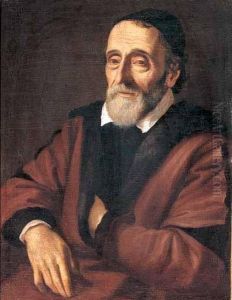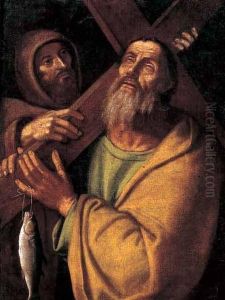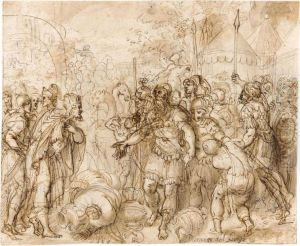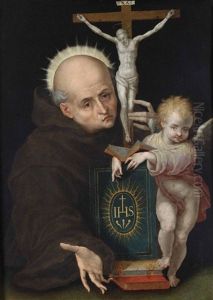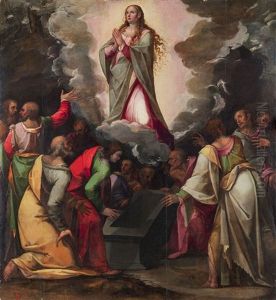Durante Alberti Paintings
Durante Alberti was an Italian painter of the late-Renaissance period, born in 1538 in Borgo San Sepolcro in Tuscany. He was part of a family of artists; his father was also a painter, and his brother Pierfrancesco Alberti was an engraver. Not much is known about his early life or training, but it is believed that he was influenced by the Mannerist style, which was prevalent during his formative years.
Alberti's work was primarily religious in nature, reflecting the Catholic Counter-Reformation's emphasis on clear, emotionally engaging, and didactic religious art. He was active in Rome from about 1560 onward and became known for his fresco and oil paintings. One of his most notable frescoes is 'The Transfiguration', located in the church of San Marcello al Corso in Rome. He also painted a 'Deposition from the Cross' for the church of San Giacomo degli Spagnoli and an 'Annunciation' for the Chiesa Nuova.
During his career, Alberti received commissions from many important churches and patrons, reflecting his status as a respected artist of his time. He was also involved in the decoration of the Gregorian Chapel in St. Peter's Basilica and contributed to the fresco cycle in the Scala Santa, adjacent to the Lateran Basilica, which included a depiction of the 'Crucifixion'. His style is characterized by clarity of form, controlled use of color, and emotional expressiveness, which were all important elements in Counter-Reformation art.
Alberti's influence carried on through his son, Cherubino Alberti, who was also a painter and engraver. Although not as famous as some of his contemporaries, Durante Alberti's work is still recognized for its contribution to the art of the period. He died in Rome in 1613, leaving behind a body of work that reflects the transitional period from the High Renaissance to the early Baroque.
